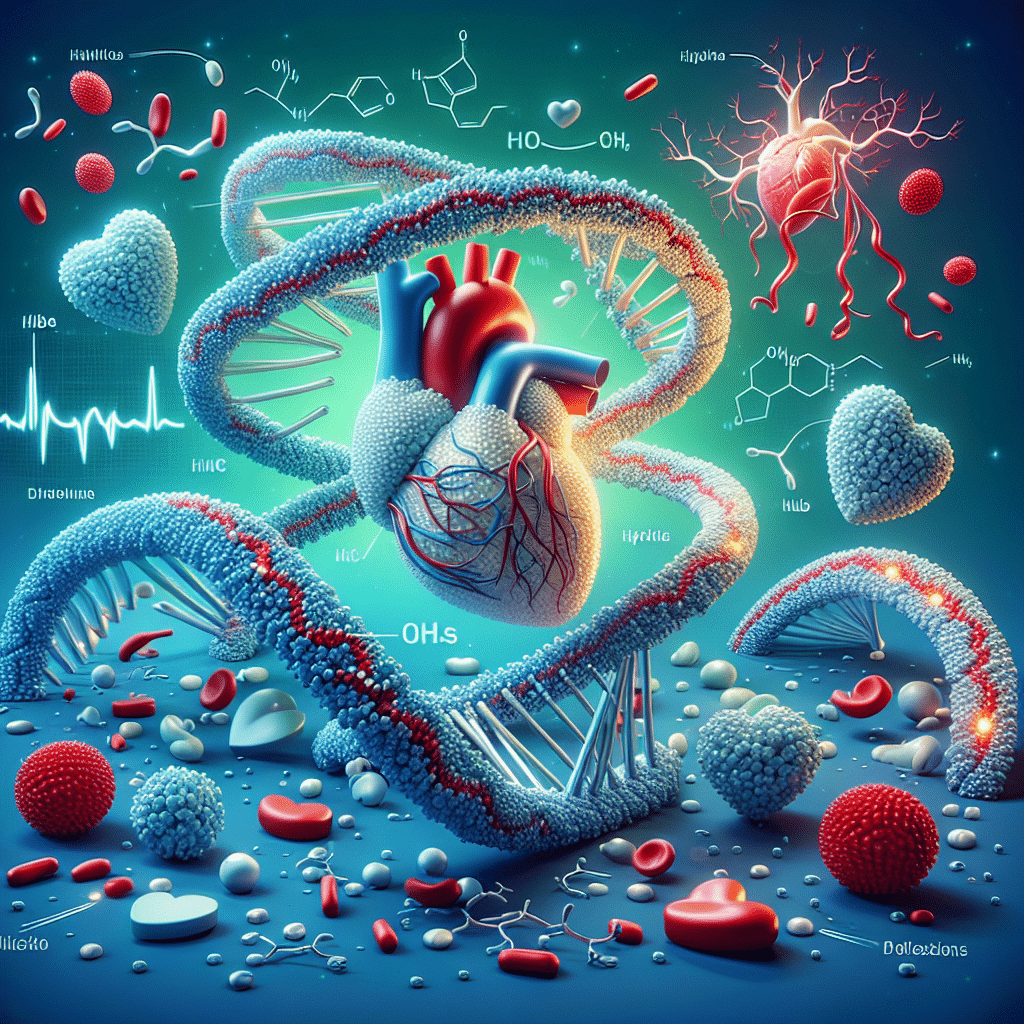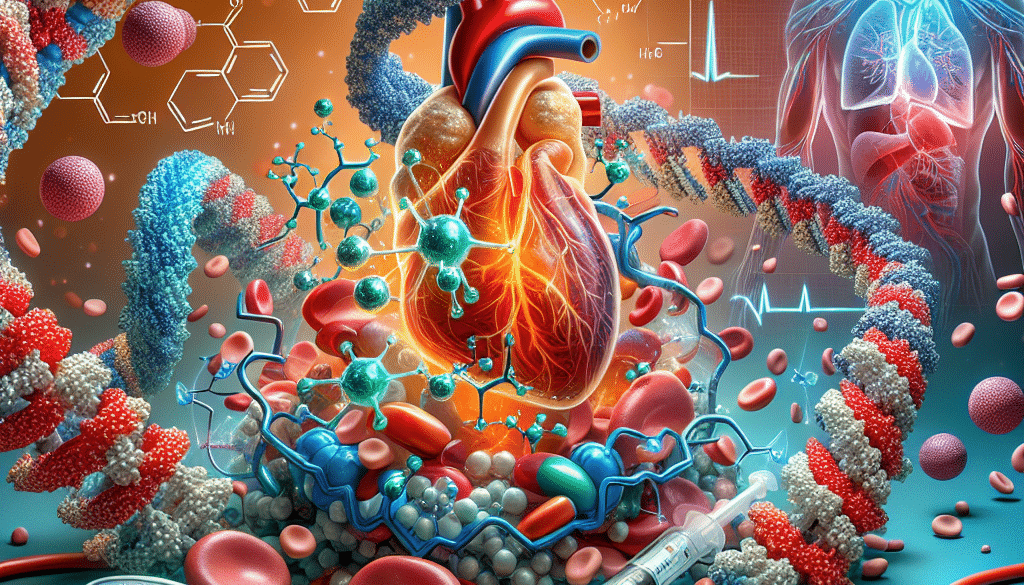Proteins in Managing Hypertension: Effective Solutions
-
Table of Contents
- Proteins in Managing Hypertension: Effective Dietary Strategies
- The Role of Proteins in Blood Pressure Regulation
- Research Findings on Proteins and Hypertension
- Case Studies: Protein-Enriched Diets and Blood Pressure
- Effective Protein Sources for Managing Hypertension
- Practical Tips for Incorporating Proteins into a Hypertension-Friendly Diet
- Conclusion: Proteins as a Pillar in Hypertension Management
- Discover ETprotein’s High-Quality Protein Products
Proteins in Managing Hypertension: Effective Dietary Strategies

Hypertension, commonly known as high blood pressure, is a significant health concern that affects millions of people worldwide. It is a major risk factor for heart disease, stroke, and kidney failure. Managing hypertension often involves a combination of medication, lifestyle changes, and dietary adjustments. Among the dietary factors, proteins play a crucial role in regulating blood pressure. This article explores the impact of proteins on hypertension and how they can be incorporated into a diet to manage this condition effectively.
The Role of Proteins in Blood Pressure Regulation
Proteins are essential macronutrients that serve numerous functions in the body, including the maintenance of muscle mass, immune function, and the regulation of metabolic processes. Recent research has highlighted the potential of certain proteins to lower blood pressure and improve cardiovascular health.
- Peptides and Blood Pressure: Specific proteins contain bioactive peptides that have been shown to exert antihypertensive effects. These peptides can inhibit the angiotensin-converting enzyme (ACE), which plays a role in blood pressure regulation.
- Amino Acids and Vascular Health: Certain amino acids, such as L-arginine, are precursors to nitric oxide, a molecule that helps dilate blood vessels and improve blood flow, thereby reducing blood pressure.
- Protein Quality and Hypertension: The source and quality of protein also matter. Plant-based proteins, for example, come with additional nutrients like fiber and antioxidants that contribute to cardiovascular health.
Research Findings on Proteins and Hypertension
Several studies have investigated the relationship between protein intake and blood pressure. A meta-analysis published in the “American Journal of Clinical Nutrition” found that higher protein intake, both animal and plant-based, was associated with lower blood pressure levels. Another study in the “Journal of Hypertension” reported that dietary proteins, particularly from plant sources, reduced the risk of developing hypertension.
Case Studies: Protein-Enriched Diets and Blood Pressure
Case studies have provided insights into how protein-enriched diets can aid in managing hypertension. For instance, the Dietary Approaches to Stop Hypertension (DASH) diet, which is high in fruits, vegetables, and low-fat dairy products (a source of protein), has been shown to significantly lower blood pressure. Another example is the OmniHeart study, which demonstrated that replacing some carbohydrates with protein (or unsaturated fat) in a diet similar to DASH further reduced blood pressure and improved lipid levels.
Effective Protein Sources for Managing Hypertension
When incorporating proteins into a diet for hypertension management, it is essential to choose the right sources. Here are some effective protein options:
- Plant-Based Proteins: Legumes (beans, lentils, chickpeas), nuts, seeds, and soy products are excellent sources of protein that also provide fiber and other heart-healthy nutrients.
- Lean Animal Proteins: Skinless poultry, fish, and lean cuts of meat can be part of a balanced diet to manage blood pressure, provided they are prepared with minimal added fats and salt.
- Dairy Proteins: Low-fat dairy products, such as milk, yogurt, and cheese, can contribute to protein intake while also providing calcium and vitamin D.
Practical Tips for Incorporating Proteins into a Hypertension-Friendly Diet
Here are some practical ways to include proteins in a diet aimed at managing hypertension:
- Start the day with a protein-rich breakfast, such as a smoothie with pea protein powder or Greek yogurt with nuts and seeds.
- Include a serving of lean protein with every meal, focusing on plant-based options as often as possible.
- Snack on protein-rich foods like hummus with vegetables or a handful of almonds to keep blood pressure in check throughout the day.
- Reduce sodium intake by choosing fresh or minimally processed protein sources and preparing meals with herbs and spices instead of salt.
Conclusion: Proteins as a Pillar in Hypertension Management
In conclusion, proteins play a vital role in managing hypertension through various mechanisms, including the action of bioactive peptides and amino acids that promote vascular health. Both animal and plant-based proteins have been shown to contribute to lower blood pressure levels when included as part of a balanced diet. By choosing the right protein sources and incorporating them into daily meals, individuals can effectively manage their blood pressure and reduce the risk of cardiovascular diseases.
Discover ETprotein’s High-Quality Protein Products
If you’re looking to incorporate high-quality proteins into your diet for hypertension management, ETprotein offers a range of organic bulk vegan protein and plant proteins that can help. Their products, including Organic rice protein, clear rice protein, pea protein, clear pea protein, and more, are characterized by a neutral taste and are non-GMO and allergen-free, making them suitable for various dietary needs.
ETprotein’s commitment to quality and customer satisfaction makes them a top choice for individuals seeking to improve their health through dietary proteins. Whether you’re a distributor, trader, or manufacturer in the food and beverage industry or looking for personal health solutions, ETprotein has the products to meet your needs.
About ETprotein:
ETprotein, a reputable protein Chinese factory manufacturer and supplier, is renowned for producing, stocking, exporting, and delivering the highest quality organic bulk vegan protein and plant proteins. They include Organic rice protein, clear rice protein, pea protein, clear pea protein, pumpkin seed protein, sunflower seed protein, mung bean protein, peanut protein etc. Their offerings, characterized by a neutral taste, non-GMO, allergen-free attributes, cater to a diverse range of industries. They serve nutraceutical, pharmaceutical, cosmeceutical, veterinary, as well as food and beverage finished product distributors, traders, and manufacturers across Europe, USA, Canada, Australia, Thailand, Japan, Korea, Brazil, and Chile, among others.
ETprotein specialization includes exporting and delivering tailor-made protein powder and finished nutritional supplements. Their extensive product range covers sectors like Food and Beverage, Sports Nutrition, Weight Management, Dietary Supplements, Health and Wellness Products, and Infant Formula, ensuring comprehensive solutions to meet all your protein needs.
As a trusted company by leading global food and beverage brands and Fortune 500 companies, ETprotein reinforces China’s reputation in the global arena. For more information or to sample their products, please contact them and email sales(at)ETprotein.com today.












